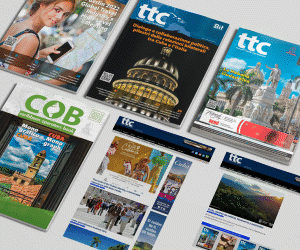TTC Special: What will the global tourism climate be like in 2030?

Photo: Pexels/Markus Spiske
By Frank Martin
The international tourism industry will finally not have to resort to a fortune teller to know what the financial climate will be like in the sector in 2030.
Many opinions agree that the weather in that sense will be sunny when finally arrives. Although there are some dissonant opinions.
The London Climate Week celebrated this month has been one of the events that has tried to unravel the future of the global entertainment industry.
The great ally of predictions is sustainable tourism. That quality is, according to specialists, hopeful.
Experts and even “soothsayers” agree that a sustainable future is the only sensible path in a world threatened by many eventualities, but especially in the tourism field due to climate change.
At the London meeting, the analyzes tended towards the same search, that is, “finding common global solutions to counteract climate change and preserve the planet for future generations”, according to a statement in London climate week.
“The need to find real and tangible solutions to counter the biggest crisis of our time is evident and there are possibilities for it,” said one participant.
The effort focused on aligning themselves in a so-called strategic discussion that indicates the steps to achieve a more sustainable future.
Scientists are on the side of those who think so.
They affirm that travel and tourism are responsible for approximately 8% of the world’s carbon emissions, and this makes the branch one of those directly responsible for the emergence of so-called sustainable solutions.
There is for many the direct responsibility of finding sustainable solutions for the sector. While travel and tourism brings people closer together, creates jobs, provides opportunities and fosters cultural exchange, it has unfortunately also contributed to the current climate emergency.
A good part of the organizers of the global tourism industry think that the “future will be bright” in that sense, but there are different criteria.
Skeptics say that planet Earth is subjected to too many environmental challenges that directly affect the climate, including deforestation.
Other evils such as pollution and the loss of biodiversity are evils fueled by the same mistakes.
One proposal is that young people be called upon to take fundamental action on the matter.
“A platform is needed for the younger generation to share their thoughts and ideas with the world, so that their passion and creativity can be used to drive positive change in the Travel & Tourism sector”, is an idea exposed on the Internet after the London meeting.
“We need to take a holistic and inclusive approach to address climate change from all perspectives, including finding solutions to reduce emissions, reduce food waste, decrease plastic use, among many other paths to drive positive economic growth. throughout the sector”, is another idea exposed on the Internet.
A coherent response is the relatively recent proposal for the creation of a Sustainable Tourism Global Center (STGC).
This entity is defined as “the world’s first multi-national and multi-stakeholder global coalition that will lead, accelerate and track the transition of the tourism industry to zero net emissions, as well as promote actions to protect nature and support communities” .
The STGCs are expected to disseminate timely solutions for travel and tourism to proactively address the climate and biodiversity crisis.
On its agenda is already the proposal to invest in research and development, show clean technology solutions and promote the principles of the circular economy to contribute to a greener and more prosperous world.
It’s a good answer to fulfilling the reassuring prophecies that the global tourism climate in 2030, a year just around the corner, will be really sunny.

MORE NEWS














